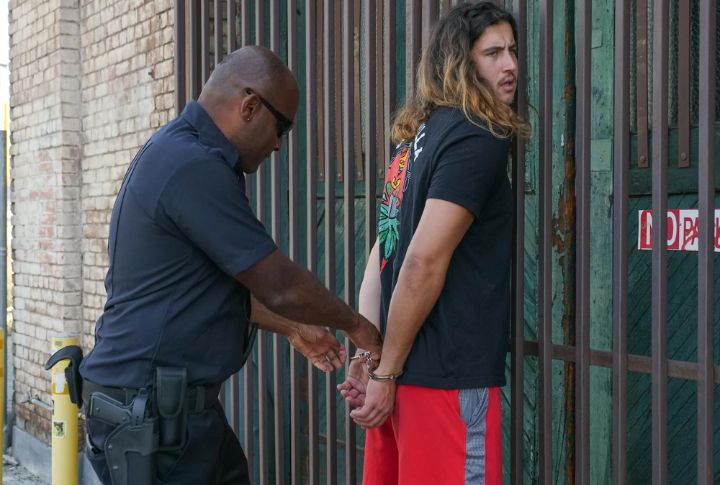
Language has a way of smoothing over rough beginnings. Many common sayings carry the dust of old laws, battlefield tricks, and forgotten professions. What sounds casual now once echoed through serious, often bizarre moments in history. Here’s a look at twenty familiar expressions with roots much stranger than their modern use suggests.
Bite The Bullet

Before anesthesia, surgeons told patients to bite a bullet during operations to endure pain. This was common during wartime surgeries, especially in the 19th century. The soft lead didn’t break teeth easily, making it an ideal choice. Today, the phrase means facing a tough situation with courage and determination.
Mad As A Hatter

This phrase originates from 18th- and 19th-century hatmakers who used mercury nitrate in the production of their felt hats. Prolonged exposure caused mercury poisoning, leading to tremors, hallucinations, and erratic behavior, which earned the label “mad.” Lewis Carroll’s Mad Hatter was inspired by this real occupational hazard.
Turn A Blind Eye

British Admiral Horatio Nelson reportedly ignored a retreat signal by putting a telescope to his blind eye. He claimed not to have seen the signal and continued the attack, which ultimately led to victory. This event in 1801 popularized the phrase, now meaning to ignore something deliberately.
Butter Someone Up

In ancient India, devout worshippers would throw butter balls at statues of gods to seek their favor. The buttery offering was seen as a form of flattery or appeasement. Later, “buttering someone up” evolved into charming or flattering someone for personal gain.
Rule Of Thumb

This phrase describes a general guideline or practical approximation. It can be traced back to the 17th-century practice of using the thumb as a rough measurement tool. Carpenters, brewers, and tailors often used their thumbs to estimate small distances or quantities.
Steal Someone’s Thunder

In 1709, playwright John Dennis invented a machine to mimic thunder for his play. The production flopped, but later, another play used his thunder effect without permission. Dennis complained that they “stole his thunder,” and today, the phrase means to take credit for someone else’s idea.
Let The Cat Out Of The Bag

To “let the cat out of the bag” means to reveal a secret, usually unintentionally. In medieval markets, unscrupulous sellers sometimes switched piglets with cats in sacks. If someone opened the bag before purchase, they’d “let the cat out,” revealing the fraud.
Break The Ice

Before social gatherings or negotiations, ships had to break the ice to clear passages and allow safe travel. Similarly, diplomatic or social “icebreakers” cleared the way for interaction. The metaphor took hold, and “breaking the ice” now means initiating conversation or reducing tension.
Paint The Town Red

The phrase is linked to an 1837 incident where the Marquess of Waterford and his friends drunkenly vandalized the English town of Melton Mowbray, painting doors, signs, and even a tollgate red. The wild spree made headlines, and the phrase evolved to mean going out for a wild night.
Under The Weather

Though the phrase “under the weather” comes from sailors who felt ill and were sent below deck, it now means feeling unwell or slightly sick. Those sailors were literally kept under the weather deck to recover because the conditions above made illness common.
Chew The Fat

Sailors in the 1800s chewed on salted fat or tough cured meat while chatting during long voyages. The activity was slow and repetitive, like an idle conversation. This expression came to mean engaging in leisurely or aimless talk.
Caught Red-Handed

This term broadly means being caught in the act of wrongdoing. Its history can be traced to medieval Scotland, where being found with blood on your hands after a murder or poaching was clear evidence of guilt. Courts required suspects to be caught “red-handed” to secure a conviction.
Saved By The Bell

Contrary to the popular myth about coffins and buried bells, the phrase actually comes from boxing. A boxer about to be defeated could be “saved” by the bell ending the round. The statement evolved to mean narrowly escaping danger or trouble at the last moment.
Skeleton In The Closet

“Skeleton in the closet” likely originated in 19th-century England, referring to hidden family scandals, like a long-dead body concealed in a cupboard. Used for embarrassing or dark secrets kept private, the statement evokes images of secrets too shameful to reveal.
Pleased As Punch

This phrase comes from the 17th-century British puppet show “Punch and Judy” and means being extremely happy or satisfied. Punch was known for his gleeful, often violent antics, including hitting other characters with a stick. Despite his wickedness, Punch was always pleased with himself, laughing maniacally after each act.
Barking Up The Wrong Tree

A hunting term, “barking up the wrong tree,” now refers to pursuing a false lead or making an incorrect assumption. The expression comes from dogs that chased prey into trees. Sometimes, the animal would jump to another tree, leaving the dog barking at the wrong one.
Go Cold Turkey

The origins of “cold turkey” are murky, but it’s often linked to the physical symptoms of sudden withdrawal from addictive substances. Another theory suggests it arose from the abruptness of the act, like being served plain, unadorned turkey. Either way, the phrase now means to quit something abruptly and completely, often in a painful way.
Riding Shotgun

In the American Old West, stagecoaches traveling through dangerous territories often had a second person seated beside the driver, armed with a shotgun to ward off bandits. “Riding shotgun” was a literal job for protecting passengers and goods. Today, it casually refers to sitting in the front passenger seat of a car.
Pulling Someone’s Leg

This expression is believed to have detestable origins. Thieves in 18th-century London would supposedly trip unsuspecting victims by grabbing or “pulling” their legs, making it easier to rob them as they fell. With time, the term softened and took on a more playful meaning—joking or teasing someone lightheartedly.
Jump On The Bandwagon

The term originated in 19th-century American politics, where candidates used bandwagons to attract attention during parades. Spectators would literally jump aboard to show their support. It evolved into a metaphor for joining popular causes or trends simply because they’re fashionable or widely accepted.

